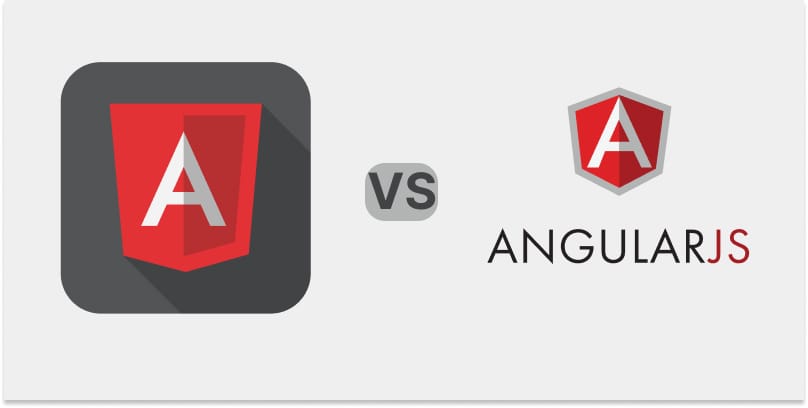Medavakkam:
+91 9176-333-334 Porur:
+91 9159-333-334 Karapakkam:
+91 9655-333-334 Medavakkam:
+91 9176-333-334 Porur:
+91 9159-333-334 Karapakkam:
+91 9655-333-334 Drop A Message

Are you at a fork in the road in your web development journey? As you delve into Angular vs AngularJS, knowing the key distinctions can steer your tech choices. Angular, born from AngularJS, tackles today's web app challenges.
This guide will lead you through their differences, from design to tools. If you aim to master AngularJS, Aimore Technologies, a premier Software Training Institute in Chennai, offers unmatched real-world project training. Let us dive in and see what sets these frameworks apart, helping you move your web development projects ahead with assurance.
Ever wondered how web development frameworks evolved? The tale of Angular and AngularJS is a game changer. Since 2010, AngularJS changed how developers build single-page apps. Its dynamic binding cuts down on code.
Yet, as web needs grew, Angular emerged in 2016, remade in TypeScript for scalability and modern development needs. Misko Hevery, the AngularJS creator, saw Angular as a robust step up. Angular’s modular design and TypeScript made it fit for today's web challenges.
Curious about Angular and AngularJS? They stem from the same root but differ in language and development approach. AngularJS, an original Google product, is JavaScript-based. Angular moves to TypeScript, adding error checks and aiding in larger projects. TypeScript brings tools like autocompletion and better code structure. Angular’s language choice impacts your developer experience and app architecture.
Here’s an in-depth comparison of the salient features of Angular and AngularJS:
Diving into web frameworks, you will see that Angular uses TypeScript, which brings static typing and helps avoid errors. JavaScript, AngularJS’s language, offers flexibility but can be error-prone. Your choice affects not just the development process but also the app structure.
Angular and AngularJS, both from Google, offer different design patterns. AngularJS uses MVC, dividing the app into three parts- model, view, and controller.
Contrariwise, Angular opts for a component-based structure, where the app is split into self-contained units. This modular approach aids in reusing code and simplifies app building and scaling.
In Angular and AngularJS, dependency injection (DI) is key. Angular’s hierarchical DI system allows for a more modular and easier-to-maintain codebase. Its system supports lazy loading, boosting performance and modularity.
On the other hand, AngularJS’s directive-based system can be less intuitive for complex apps.
In the web development world, Angular and AngularJS shape app development. Angular CLI, a standout tool for Angular, simplifies project setup and enhances the development workflow. Angular CLI’s features, such as bundling, scaffolding, build optimisation, and minification, outpace AngularJS. It also saves time and boosts performance, making Angular the go-to over AngularJS.
Data binding is crucial in web apps. Angular uses one-way data binding for predictable code, while AngularJS offers two-way binding for an interactive experience. Both methods shape data management and app state.
’Data flow is vital in apps. Angular’s one-way data binding ensures efficiency, while AngularJS's two-way binding offers interactivity. Your choice affects app efficiency and responsiveness.
For mobile apps, Angular beats AngularJS. It is designed for mobile support, offering tools for responsive and efficient mobile apps. Angular’s mobile-friendly features improve productivity and performance.
In performance, Angular and AngularJS offer different paths. Angular’s one-way data binding and routing improvements speed up apps. Its modern approach boosts speed and efficiency. In contrast, AngularJS’s two-way binding can slow complex apps.
Routing and app structure matter for user experience. Angular’s built-in router and lazy loading support make it ideal for complex apps. AngularJS lacks these advanced features, impacting your app’s structure and performance.
SEO matters for web apps. In this context, Angular’s server-side rendering makes content more crawlable by search engines, unlike AngularJS.
This feature comparison should help you sharpen your perspectives about these frameworks and choose the right career. We now move on to their benefits and drawbacks.
Consider Angular and AngularJS’s pros and cons before zeroing in on your framework. Angular can be complex but is modern and scalable. AngularJS may lag in performance and SEO. Ensure these pros facilitate your project’s needs and vision.
Choosing a framework is critical. Angular and AngularJS serve different needs. Angular suits ambitious, scalable projects. Moreover, AngularJS’s support is fading, so Angular may be the better long-term choice. Consider your project's size, goals, and team expertise.
As you wrap up your Angular and Angular JS exploration, the differences are clear. Angular’s focus on modern best practices positions it as a frontrunner in web development. However, if you lean towards AngularJS, you can enrol in Aimore Technologies’ AngularJS training in Chennai.
We are one of the best software training institutes in Chennai, offering a wide range of IT-related courses with excellent hands-on support. Seize this chance to future-proof your IT career with Aimore’s specialised programs.
After mastering Angular and AngularJS, you can anticipate the following job opportunities in Chennai:
Moreover, certified professionals may have an edge in the job market, and experience in related technologies like Node.js, MongoDB, or Ionic can enhance job prospects.
Aimore Technologies offers the best AngularJS training in Chennai. Our course comprises
Course Features:
Our AngularJS Trainer Profile:
AngularJS Certification Training: